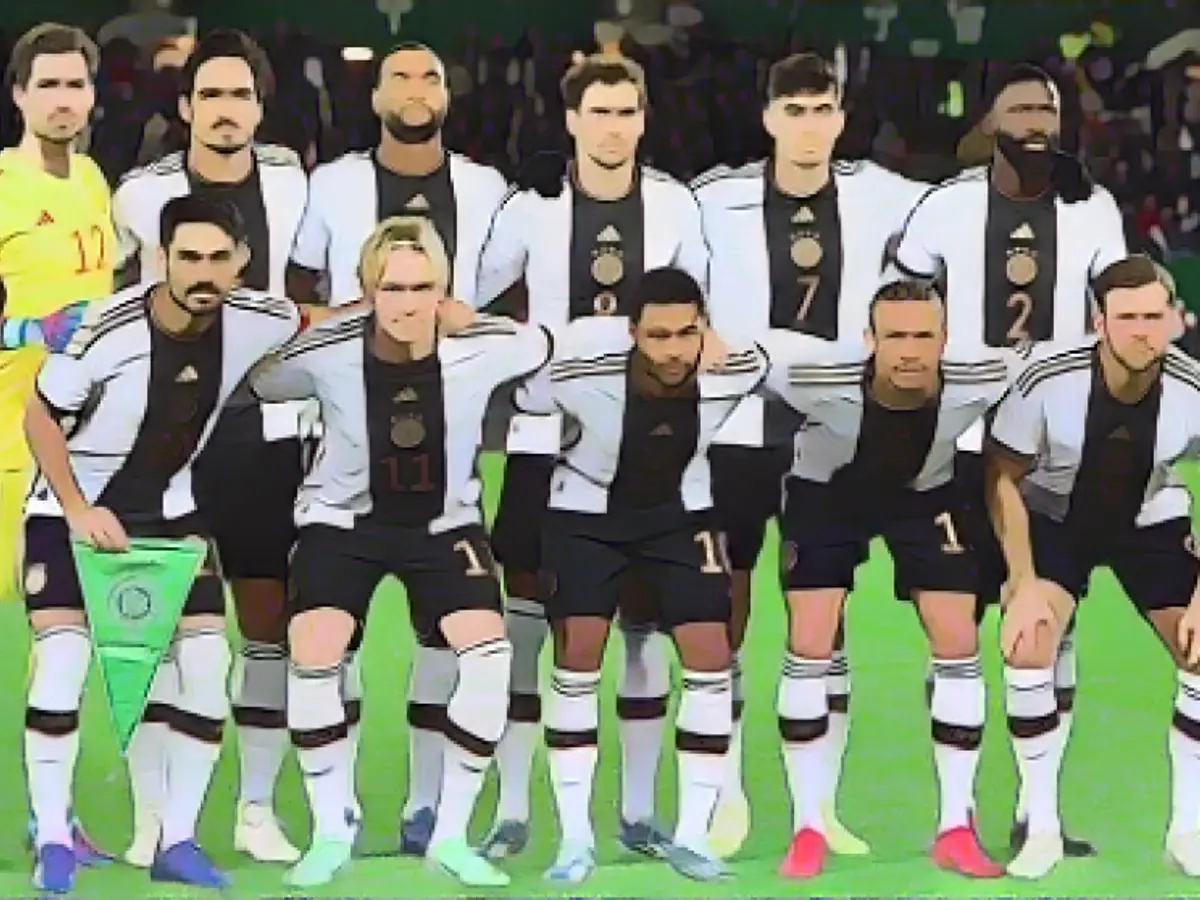Saturated, Comfortable Germany: A Society in Decline? 🇩🇪
Germany was known for its "German virtues" - reliability, commitment, and the drive to be at the forefront. These traits once made our country great and were both admired and feared internationally. So, what happened?
Where Have They Gone?
The national soccer team is a mirror of the nation itself - complacent and resting on its laurels. Traffic light chaos, a struggling economy, and a struggling national team - Germany no longer reigns supreme.
The German National Team
The German national team, once the epitome of virtues on a global stage, now struggles to shine. 2014, the year of the mighty rebellion, was the last time it truly sparkled. Since then, it's been a series of ups and downs, missing the international aura of victory that once defined it, just like the nation's decline in its reputation as an export champion.
Causes for Concern
Germany's decline is multifaceted, with numerous factors contributing to the shift. Religion, education, societal influences, and history all play a role in the current state of the nation and the national team.
Cultural, Education, and Social Influences
- Prioritization of Politics Over Intellect: Friedrich Nietzsche warned of the negative impact politics can have on intellect. When politics take precedence, culture suffers.
- Higher Education Issues: Nietzsche was also critical of the qualifications of college instructors and the notion that higher education should be common property. Education reform, focusing on intellectual development, could improve the situation.
- Exclusion Policies: Exclusive policies can drive a wedge between individuals, causing a decline in society's cohesion. Inclusive policies, like those that foster integration and inclusivity, are key to enhancing cohesion and fostering virtues.
- Historical Contexts: The suppression of individuality and creativity in the realm of culture, as during the Nazi regime, has negatively impacted the nation's virtues. Supporting diversity and creativity will help combat this effect.
Potential Solutions
- Promote Intellectual Sophistication: Reforming education by prioritizing intellectual development and critical thinking could help elevate German thought.
- Foster Social Cohesion: Adopt inclusive policies and address economic inequality, climate adaptation, and social challenges through a democratic lens.
- Encourage Individuality and Creativity: Support organizations and initiatives that promote autonomy and creativity, making room for individuality and diversity in personal and professional life.
- Engage in Rational-Critical Debate: Encourage rational-critical debate in the public sphere as envisioned by Jürgen Habermas to foster a culture of critical thinking and democratic values.
Moving Forward
Let us remember and embrace the virtues our country once embodied. Apathy won't solve the issue; instead, let each of us strive to live and embody the virtues as only we, the German people, can. Only then will Germany begin to turn the corner.
Sources
- (base article)
Enrichment Data: The decline of German virtues in society and the national soccer team can be attributed to various factors, including cultural, educational, and societal influences. Here are some potential causes and solutions.
- Prioritization of Politics Over Intellect: Friedrich Nietzsche argued that the decline in German intellectual sophistication was due to the prioritization of politics over intellect. He believed that the state and culture are antagonistic, with one thriving at the expense of the other.
- Higher Education Issues: Nietzsche criticized the qualifications of college instructors, suggesting that educators should be educated themselves. He also argued that higher education should be reserved for the privileged, as it cannot be common property.
- Cultural and Social Factors: Rise of exclusionary policies and suppression of individuality can create a sense of alienation and undermine social cohesion.
- Historical Contexts: Nazi Gleichschaltung and efforts to synchronize society through coordination and control led to the suppression of individuality and creativity, which are essential for fostering national virtues.
By addressing these factors and implementing potential solutions, Germany can revitalize its national virtues and improve societal and sporting performance.








